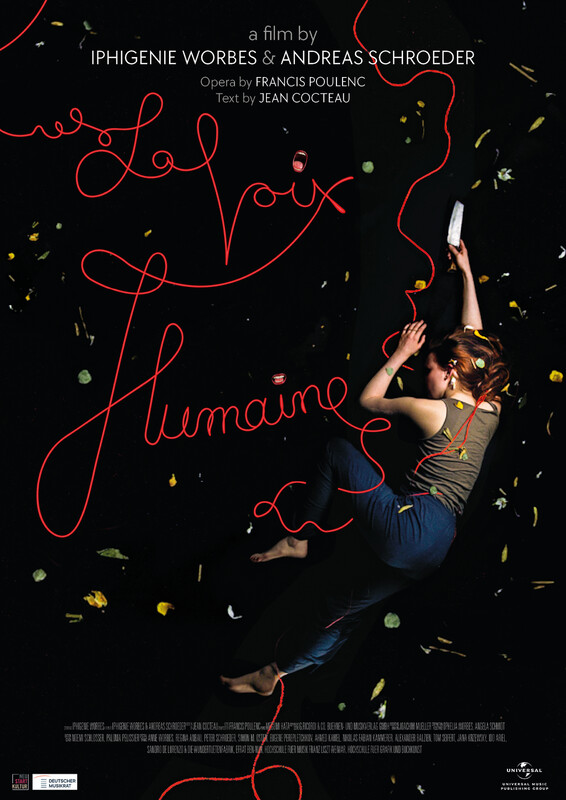
Long métrage 46:41 - Musical - Germany
Réalisé par / Directed by
Iphigenie Worbes, Andreas Schröder
2024
Synopsis : "La Voix Humaine" (engl. The Human Voice) is an opera film adapted from Francis Poulenc's mono-opera, itself inspired by Jean Cocteau's play of the same name. The film begins with a crack of light revealing a woman, "Elle", collapsed on the floor. A sudden phone ring startles her. After a recent breakup Elle has been desperately waiting for her ex to call. As their conversation unfolds, surreal imagery mirrors Elle’s emotional journey through the stages of the separation: denial, nostalgia, anger, self-blame, and ultimately, resolution. Her ex’s responses are left to the imagination, conveyed only through her reactions and the shifting musical landscape. The fractured dialogue, distorted by a poor phone connection and dishonesty on both sides, deepens her isolation. In this telecommunicative void, the phone line becomes a lifeline and a gallows rope, connecting and separating, offering both hope and doom.
In times when communication is increasingly impersonal and virtual, Poulenc's opera The Human Voice feels more relevant than ever. The work explores the challenges of expressing deeply intimate emotions through a telephone call without the physical presence of the other person. Themes of mental health, loneliness, separation, toxic dependency, and suicidal despair are sensitively and powerfully composed in this opera. Drawing inspiration from Cocteau's surrealist imagery and Poulenc's evocative music, we have crafted our own cinematic interpretation of this timeless material. Our film’s unconventional approach aims to resonate with audiences beyond traditional opera-goers, offering a fresh perspective for those new to the genre while inviting seasoned enthusiasts to explore an artistic and philosophical lens drawn from the world of visual arts.
Ce film n'est pas éligible au marché du film.
Service offert lors de l'inscription.
Ce service est sous l'unique responsabilité des ayants droits, vous pouvez gérer ces paramètres dans votre "Espace Personnel" - Rubrique : "Industrie".